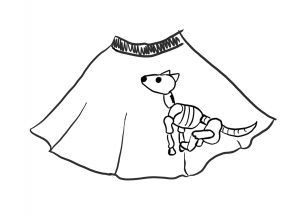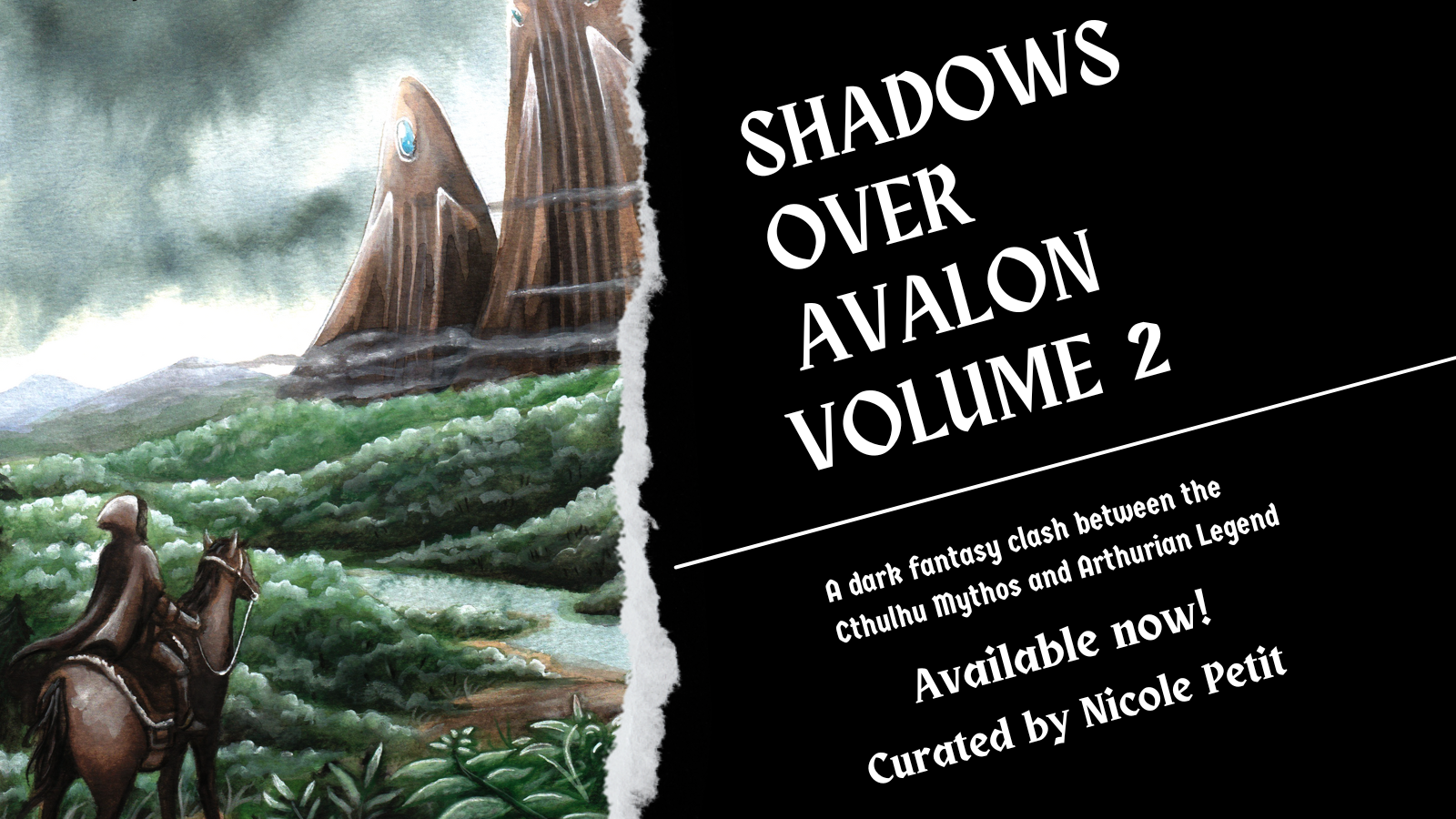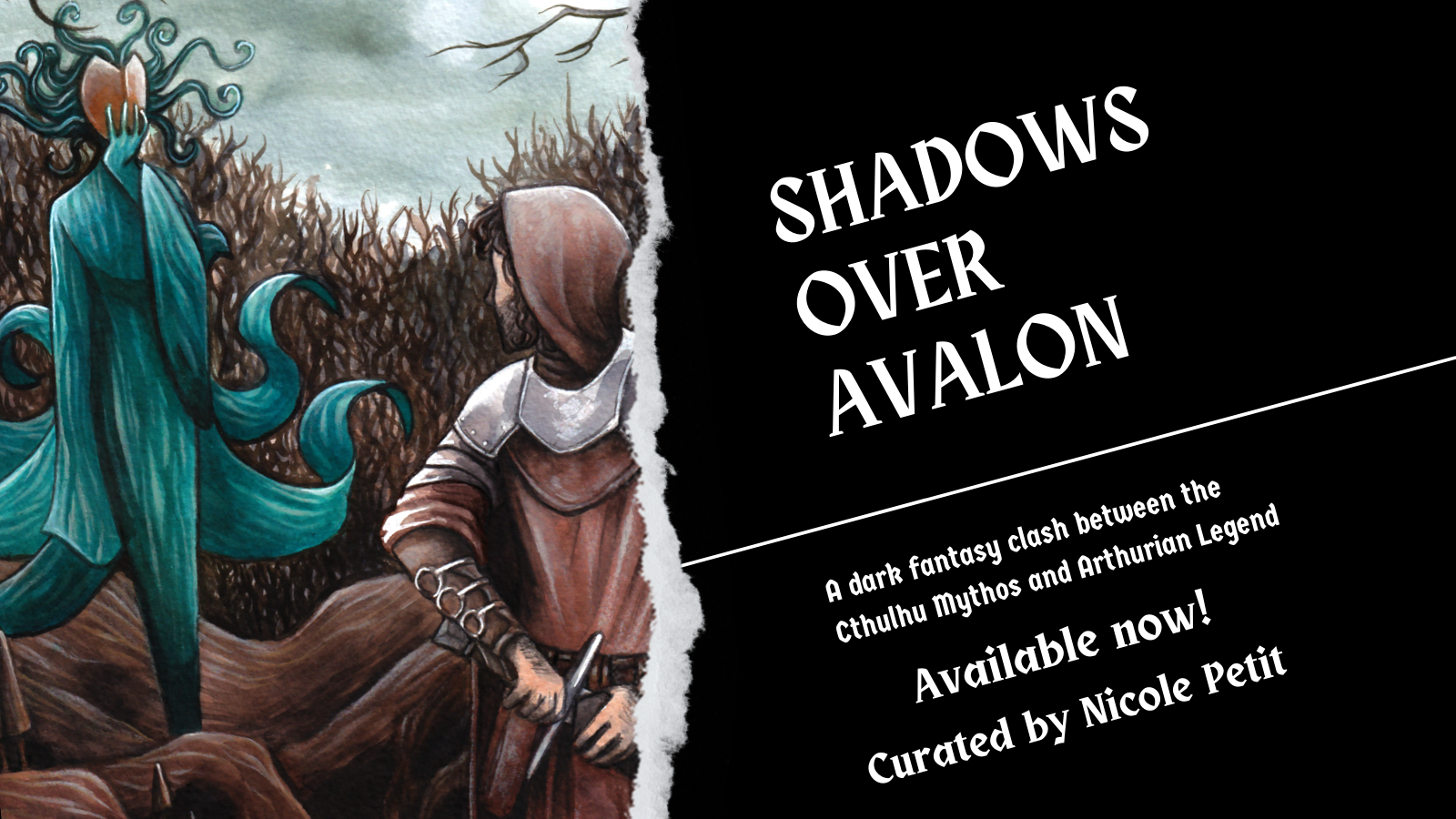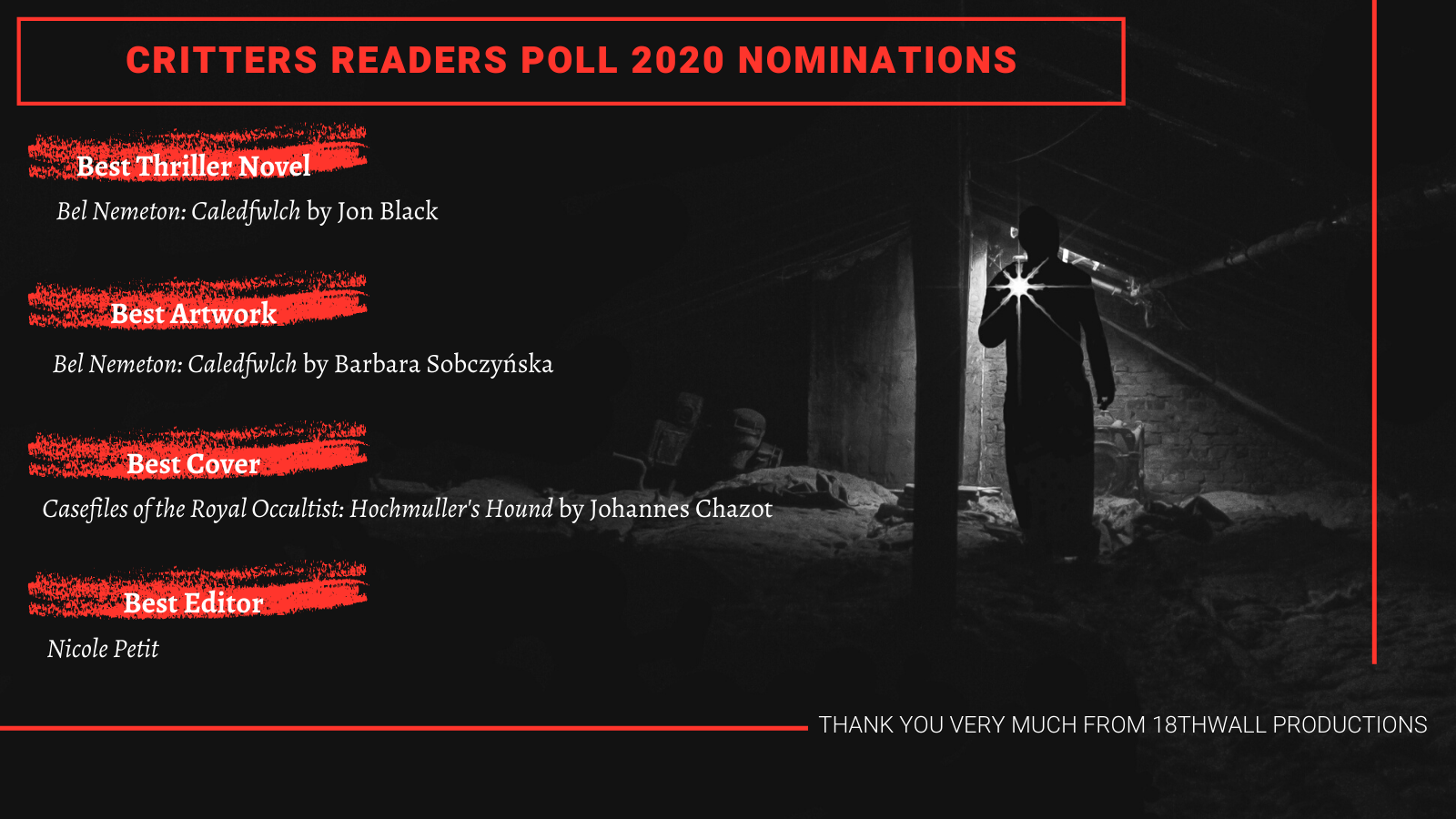Sockhops & Seances: Richard Sheppard’s Joe Meek Inherits the Earth
We’re pleased to present our next excerpt from Sockhops & Seances – an exclusive look at Richard Sheppard’s “Joe Meek Inherits the Earth.” In the midst of the Great Smog, an American PI in London tries to a find a missing young man.
AMAZON US | AMAZON UK | AMAZON CA
EBOOK
18THWALL | AMAZON US | AMAZON UK | AMAZON CA

It was sunset, and I was drinking and mourning the loss of an old friend. Pretty romantic image, I guess, except I was drinking cooking sherry that had been bottled around VJ Day, and the ‘old friend’ was one of my front teeth (my left, your right). I didn’t have a good story to go with the missing dentistry, which for a Yank private investigator (in London, no less) was a cardinal sin. I suppose I could say a client’s husband had sucker-punched me while I was tailing him, but the truth was simpler; neglect. I hadn’t been taking care of my teeth since I (with a little help from the rest of the army) had kicked Tojo’s rear-end all over a series of islands in the Pacific seven years ago. After that the free dentistry, the free food and soldier’s pay had ended. I was billeted to London due to a clerical mistake, and when my real papers came through (tickets back to Omaha, the same medals everyone else got, and a thick wedge of back pay) I decided to stay there. I had been a MP in the war, and under the delusion that this meant much of anything, became a detective here. Got a licence somewhere, looks so pretty you can hardly tell it’s a fake. The service pistol I hadn’t turned in was real though, and so was the office where I sat that night, drinking vinegar sherry and re-learning how to whistle with one front chopper.
Not that there was much to whistle for in London in 1952. Most public transport had stopped running yesterday, and the only ways to get around the city were the underground and a few taxi drivers insane or desperate enough to hit the streets. You see, London was starting to look like the inside of a Hookah pipe and showed no signs of clearing. At the beginning of December the temperature had dropped so far that people were starting to make uneasy jokes about skating across the Thames rather than pay cab fare. It was cold enough to make your nose bleed out on the streets, so people burnt what they could to keep warm. When the coal ration was gone they burnt nutty slack, which is as close to real coal as I am to Danny Kaye.
Between the smoke and the fog, visibility had become a joke. One of my old bosses, Winston Churchill, had done his bit to alleviate the condition by pulling the cheroot out of his bulldog phizzog long enough to declare that it was normal for London, and in a city that could still remember the Blitz, a little fog couldn’t stop us. Mind you, he was somewhere in Westminster, where they probably had staff who shooed away the smog before it came within spitting distance. Not that any of them spat, of course.
I was stuck in the East End, where everyone spat a lot. Couldn’t blame them really, it was one of the few things that wasn’t rationed. I had work though, the people around here cheated on their spouses and needed to find out dirt same as everyone else. I had a West End law firm that kept me on retainer as well, it saved them wearing out their Saville Row wingtips coming down to the East End themselves. I could afford to sit in my office and wait for the fog to lift, eat out of tins and try to translate the Goon Show on the wireless into English.
However, and I think it was Abraham Lincoln who said this, when a man is comfortable sitting on his ass and reconciled to drinking bad booze, life comes along and kicks him in the aforementioned. The kick that got me out of my office and working in this grimy fog came from someone with the prettiest cupids-bow lips and a platinum hair-do that must have cost more than my month’s rent. Unfortunately, both things belonged to a man, a bloke as they say around here, who walked into my office with more sashay than Marlene Dietrich.
I was surprised. Firstly, most men don’t wear Chanel No. 5. Secondly, that anyone would come into my office at all. The ambulances were running a limited service, but the bobbies (cops, to you and me) had called up all reserves and were working double shifts until the fog cleared. What could be so bad that someone would need a humble private detective instead? The enigma folded himself into the revolving chair in front of my desk. The smell of the fog was on him, on everything, a kind of acrid, burning smell that infected everything. Not for the first time I congratulated myself on my decision to shut myself away until it had blown over. Once he had blown whatever it was we were all inhaling out of his nose and his eyes had stopped streaming, he fixed his attention on me.
“What happened to your tooth?” he asked.
“Knocked it out just before you got here, trying to fit in with you English,” I said, making a note on my jotter to see a dentist as soon as the fog cleared.
“I see,” the man said, pursing his perfectly painted lips together in disapproval. I started to get an idea why he had come to see me instead of the police. I didn’t mind that he was a fruit, I had a cousin in the Navy after all.
“Why don’t you tell me why you came out in this horrible weather, Mr…?” I trailed off, interested to hear which fake name he would choose.
“Ruskin. I am given to understand that you can find people.”
“Are you kidding me, Mr Ruskin? Look outside, people can barely find their feet. Whoever is missing is going to stay that way until this crap blows over,” I said, and pulled the office blinds up so he could see the pale yellow fog climbing up the windowpanes.
Ruskin sighed, as if I had brought the fog down on London just to be difficult. “I am well aware of the weather, it took me an hour just to get here from—” He cut himself off, aware that he had almost given me some clue to as to his location. I wanted to tell him I didn’t give a damn who he was and where he was from, I wasn’t taking any work that meant leaving this comfortable hovel I called my workplace. It wouldn’t have worked though, people like Ruskin had got so use to keeping secrets that it was as much a part of them as their eye-colour or gait.
“And you made a wasted trip anyway, Mr Ruskin. I don’t need any new clients at this time.”
“I can pay,” Ruskin said, as if to reassure me that we weren’t on the barter system.
“Yeah, you and everyone else in an astrakhan coat, but it’s not about the money.”
“You wouldn’t have to go far.”
“Why? Is the missing person Mr. Patel? He’s downstairs selling tobacco and fruit gums. Pay up,” I said. I was getting interested despite myself. Curiosity would kill me quicker than a bullet, my old CO used to say.
“Almost as near. I need you to go to The Frampton Arms around the corner and ask a few questions about a friend of mine.” Ruskin said, and laid a snapshot on my desk of a young, skinny guy with a quiff. He was wearing drainpipe trousers and a cowboy shirt, and was focused on something just behind the camera.
“I think you’re going to get further in the Frampton Arms than I ever would, buddy,” I said. The Frampton Arms was only a ten-minute walk around the corner, but in terms of my choice of watering hole, it may as well have been on the moon. Everyone knew the Frampton Arms was a fruit bar, and the only straight guys who went in were draymen and police looking for a pay-off.
“Scared of going in? You’re not that pretty, I assure you. I doubt if anyone would even give you a glance,” he said.
“Keep it up, Ruskin, you might make me cry,” I said. I picked up the photograph and scrutinised it. I didn’t recognise the background, just another brick wall.
“A little walk around the corner couldn’t hurt, could it? Drop into a pub, ask a few questions, home before midnight.” Ruskin had changed his tone, obviously trying to turn on the charm. It didn’t work, but what did were the crisp twenty pound notes he placed on my desk after each word. I lost count after a while, but by the time Ruskin had finished his sentence there must have been at least £400 on the blotter.

December 3rd, 1952
Every Friday, to keep us off the streets and out of the clubs, the RAF holds lectures on everything from art history to the situation in Burma. As you can imagine, hardly anybody shows up. I wasn’t going to myself, but this one was about music (!!!!) and mathematics (????). Besides, Norman was creeping around the Frampton the last few times I was there, and while the £££s were lovely, he wasn’t exactly Montgomery Clift. Thank God I went to the lecture though, it was the first time the RAF had managed to surprise me and teach me something I couldn’t have figured out for myself!! The lecturer was some tweedy old bird down from Nottingham Uni, down to the leather patches on his elbows and the dandruff on his collar. Right at the point when the maths was getting a bit dull, he pulls out a bloody ukulele! I thought he was going to go all George Formby on us, but he kept on talking, holding the uke up so the six men gathered there could see the strings.
“You see how the strings are?” he said. I have a horrible memory, but I’m going to try to remember the jist of what he said next. “The fractions we looked at earlier, at their most basic level what we call ‘halves,’ ‘thirds,’ ‘eights’ and so on, are everywhere. Primitive man would have understood what we mean by a ‘half’ even if he didn’t know the word for it.” At this point he moved his finger over the string without using any of the frets. I heard the note, clear and precise in the big hall. “One note,” the Professor said, and then put his finger halfway down the string on the fretboard. He plucked it again. Another note came out, different from the first but the same somehow. Confession time—I couldn’t tell you if it was a B sharp or an F flat, all that Beethoven stuff doesn’t do anything for me and I couldn’t play an instrument if my life depended on it. My mum always said I couldn’t carry a tune in a bucket, but something about that first note and that second note seemed to make sense to me. I couldn’t explain it, any more than I can explain how I know to breathe. And then something even more wonderful happened—the Professor started speaking real English to me! “The first note was somewhere around 500 hertz, so the second must be 1000 hertz, twice as much for half the length, you see?” he said, and I saw. This was what bored me so much about fixing radios and tinkering with radar for the RAF. I never thought it had to do with music, just more boring maths. He went on to explain how the string could be halved and halved again to produce frequencies, but all in the same multiples. He went on to say—and here I almost leapt out of my seat—that with a string a mile long, the resonances would still work the same way!!!! He went on to explain how placing your finger a third of the way along the string would produce the same effect. Keep on reducing the string by a third to get more and more notes. He called it the pentatonic scale, and he said that everywhere on EARTH used this, from Negro jazz musicians in the States to polka bands in Czechoslovakia. Now all throughout this he kept on strumming the uke until he had played all the notes he could. I asked him if that meant that everything that was alive would understand this, and he looked a little startled, as if he was shocked that anyone was listening at all. He said that he supposed so, but even then it was an imperfect system. He didn’t get my question. If maths was music and maths was the start of everything, then music could be used to communicate with everything, even things not from this bloody planet!! I started to tune out slightly at this point, my head was whirling. I didn’t hear the end of the lecture, I was too busy thinking of guitar strings a mile long, pointing straight into the sky!!!





